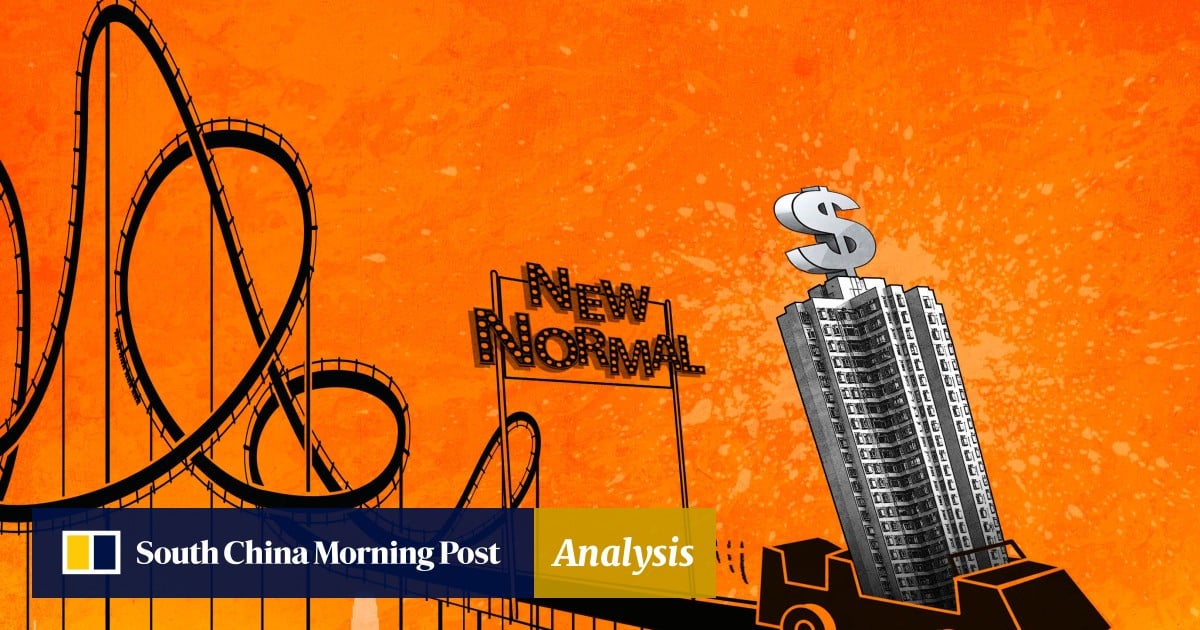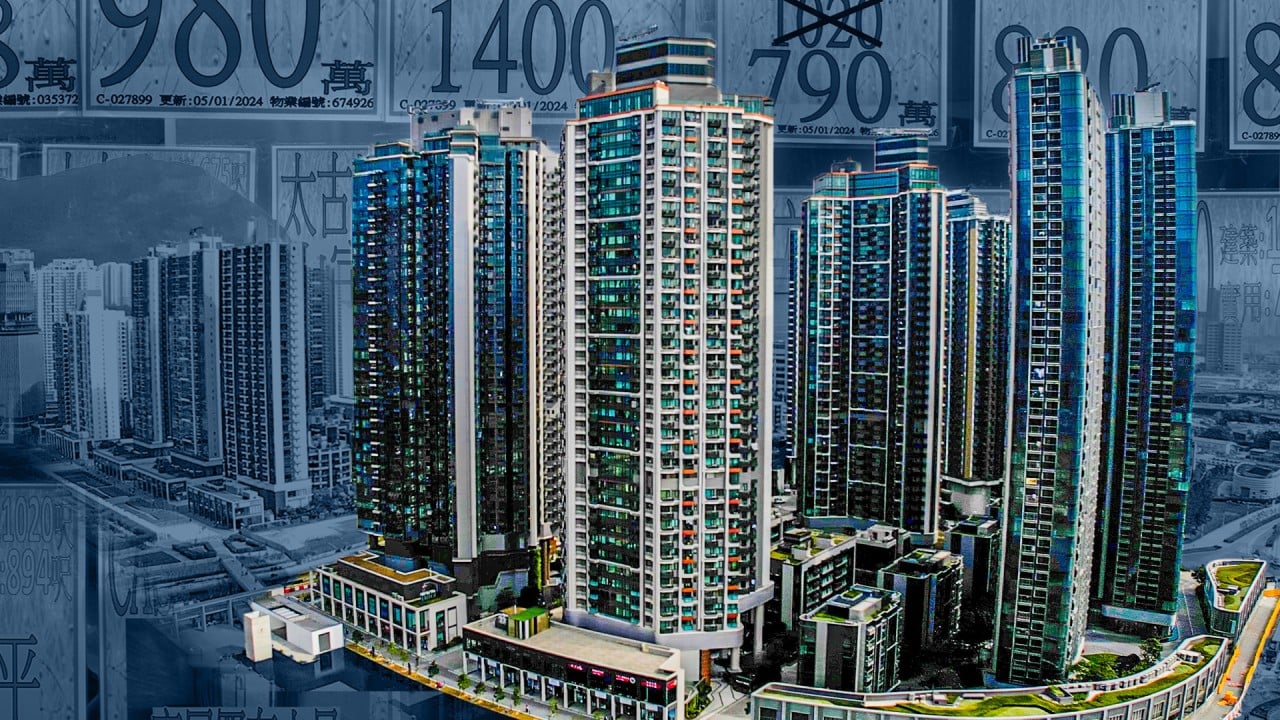
06 Apr A new normal: are the wild days of Hong Kong’s housing market a thing of the past?
“I have already got a house under my name that I live in, but I didn’t think of buying a second one for investment until now because of the 15 per cent ad valorem stamp duty,” the 36-year-old permanent resident said.
Such curbs were originally introduced to cool excess market speculation that took hold in the early 2000s and drove home prices to eye-watering levels.
Their removal has made property a viable investment option once more at a time when Hong Kong’s stock market is not performing well, said Mak, who works in the beauty sector and has six years of experience investing in stocks and bonds.
“Foreclosed properties are in general cheaper than flats in the secondary market,” Mak said.
“Many homesellers immediately declined my offer after the announcement, but for foreclosed properties if you meet the bottom price, that’s a deal unless there is someone to compete with you.”
“The recent recovery was primarily driven by pent-up demand,” said Donald Choi, executive director and CEO of Chinachem Group.
“Hong Kong’s property market will remain relatively stable in the future. A healthy market is where there is supply in the market and property prices rise with inflation.”
The market saw an immediate surge in transaction volumes as soon as the restrictions were binned. A total of 3,971 new and secondary residential units changed hands in March, up 67 per cent from the previous month. That was the highest number since the 4,003 homes sold in May last year, according to Land Registry data.
But that has not translated into higher prices.
“Although transactions are more active, instead of an increase in prices, we are seeing a further reduction,” said Joseph Tsang, chairman of JLL Hong Kong, a property consultancy.
The market is unlikely to rebound back to its peak, Tsang said, citing the high inventory level of new residential projects and the likelihood that interest rates will remain high even if the US Fed cuts rates this year.
Limited supply has been one of the major reasons why Hong Kong has experienced a 271.7 per cent jump in home prices since 2009.
There are currently over 20,000 completed but unsold units in the market, according to Norry Lee, senior director of the projects strategy and consultancy department at JLL in Hong Kong.
This year, the construction of some 22,270 private homes is forecast to reach completion, a 6 per cent year-on-year increase. Next year that will rise to 25,530, according to data from Rating and Valuation Department, the supply being mainly concentrated in Kowloon and the New Territories.
In order to absorb that many units and reach a more balanced supply and demand dynamic, there need to be around 25,000 to 30,000 first-hand transactions each year, JLL said.
“Given the average annual transaction volume of about 15,000 to at most 20,000 deals, it will take at least four years to digest all inventories available and it is very difficult for home prices to see a significant rise,” said Will Chu, senior research analyst for Hong Kong and China property at CGS International Securities.
Chu expects interest rates to come down to around 2.5 to 3 per cent, reducing the burden of mortgage repayments. But that is still much higher than the ultra-low interest rate environment that supported a rapid increase in home prices over the years.
“It’s hard to see a drop in interest rates back to the previous level,” he said.
The strong sales in the primary residential market are being partly driven by developers offering large discounts to attract buyers returning to the market.
This in itself may be a sign that property prices are not going to see the kind of stellar growth they enjoyed previous years, according to Choi of Chinachem.
“It indicates [developers’] caution about the market outlook,” he said.
Last month, Wheelock Properties sold an entire first batch of units in one day as it priced its new project, Season Place in Tseung Kwan O, at a five-year low for the district. Li Ka-shing’s flagship developer CK Asset Holdings launched its first flats at Blue Coast, atop Wong Chuk Hang MTR station, at the lowest average price per square foot among other developments in the Southside neighbourhood.
This price war is feeding into the secondary market, JLL’s Tsang said.
“Second-hand homes are under pressure as the pricing of new flats is close or even lower,” he said.
Home sellers are refraining from raising their asking prices as the removal of Special Stamp Duty (SSD) increases the supply of lived-in homes. The tax had charged up to 20 per cent of the value of any residential property that was resold within three years, with even higher fees applicable for shorter durations.
More cash-strapped owners who held back from selling their properties over the past two years will put flats up for sale at a loss as high interest rates and the slow economic recovery take a toll, according to Derek Chan, head of research at Ricacorp.
A total of 484 loss-making transactions were recorded in March, Chan said, seven of them incurring a loss of more than 35 per cent.
A unit in phase I of Emerald Bay in Tuen Mun was recently sold by its owner for HK$2.34 million, almost half the purchasing price of HK$4.04 million in 2020.
“The home price index is based on secondary market transactions. If the market is under pressure, it may prevent property prices from rising,” he said.
Meanwhile, mainland Chinese buyers have started to snap up flats in Hong Kong, benefiting from the removal of the Buyer Stamp Duty (BSD) and New Residential Stamp Duty (NRSD), which used to be as high as 30 per cent before it halved in October. The levies had been in place to control an excessive influx of capital from mainland China.
The proportion of mainland buyers has shot up to 40 per cent in some of the recent launches and they accounted for 70 per cent of the primary sales of luxury homes in March, rebounding from less than 50 per cent before the removal of curbs, according to JLL’s monthly report.
The city’s various talent schemes and investment immigration programmes are helping to sustain this influx.
“But how huge the demand will be also depends on China’s economic recovery,” said Chau Kwong-Wing, chair professor of real estate and construction at the University of Hong Kong.
Chau said home prices are more likely to rise than fall in the long run as demand increases, but the growth will be capped at a certain level.
“The government is fully capable of controlling the demand from the mainland,” he said. “When there is too much capital coming causing a surge in home prices, the government can reintroduce stamp duties to take it under control.”
The number of investors in the market looking for short-term speculative profits will fall because property prices have not rebounded and there is not much scope for them to rise significantly in the future, said Raymond Tsoi, chairman of Asia Property Holdings, who has 38 years of real estate industry experience.
“Investment returns will remain at a lower level as investment costs are high,” he said.
Meanwhile, Mak is thinking about reselling the unit she bought in Tuen Mun next year and leasing the other two, expecting a 3 to 4 per cent rental yield.
“I do not think that the property market will rise as crazily as it has in the past, but it is time for some momentum because it has been quiet for a long time,” she said.
“I hope the property market will head towards healthy growth, it’s not good to have an abrupt surge in home prices, and the government could make changes to the curbs at any time.
I’m investing based on the outlook for the next three to four years. If the prospects are stable, I will continue buying.”

